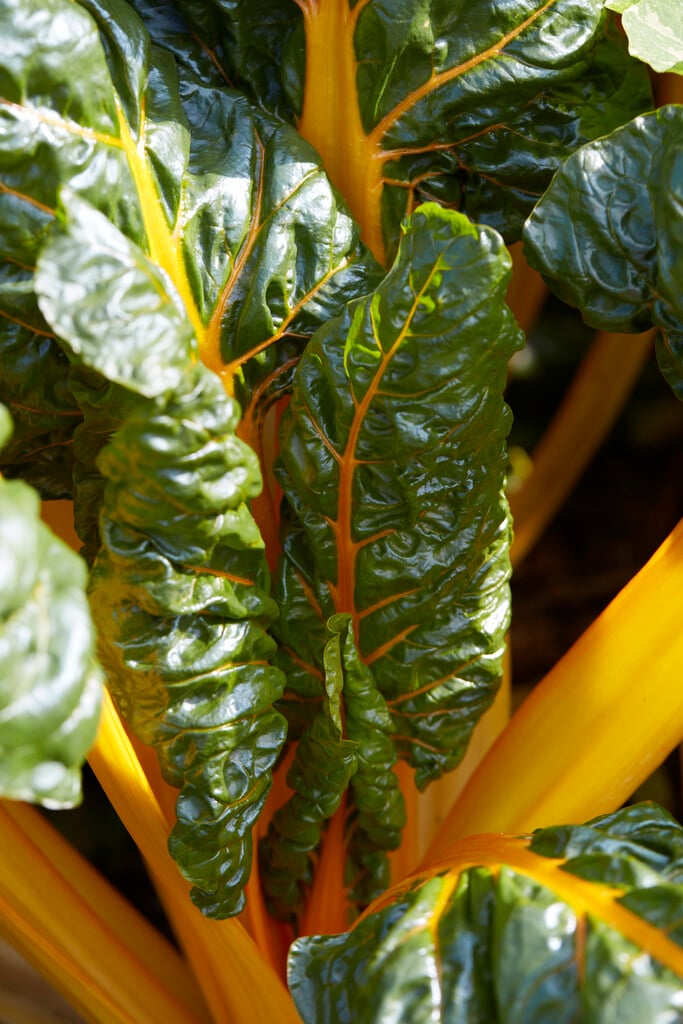Beta vulgaris subsp. cicla var. flavescens 'Bright Yellow'
chard 'Bright Yellow'
A striking chard variety producing broad leaves with vivid yellow stems that carry a sweet flavour. It can be grown as baby leaf or left to mature, cropping from mid-Summer to late Autumn. It is slow to bolt and has good Winter hardiness

Buy this plant
Size
Ultimate height
0.1–0.5 metresTime to ultimate height
1 yearUltimate spread
0.1–0.5 metresGrowing conditions
Moisture
Moist but well–drainedpH
Alkaline, NeutralColour & scent
| Stem | Flower | Foliage | Fruit | |
| Spring | Yellow | Green | ||
|---|---|---|---|---|
| Summer | Yellow | Green | ||
| Autumn | Yellow | Green | ||
| Winter |
Position
- Full sun
- Partial shade
Aspect
East–facing or North–facing or South–facing or West–facing
Exposure
Sheltered Hardiness
H3Botanical details
- Family
- Amaranthaceae
- Native to GB / Ireland
- No
- Foliage
- Deciduous
- Habit
- Clump forming
- Genus
Beta can be annual, biennial or perennial plants, often with rosettes of basal leaves and thick, fleshy roots. The genus includes a range of wild species, as well as cultivated food crops such as beetroot, chard and sugar beet
- Name status
Accepted
How to grow
Cultivation
Grow in fertile, rich, free draining soil in full sun or partial shade. Sow direct between March and July, 2.5cm deep and 10cm apart or sow indoors in modules and transplant when large enough to handle. See vegetable cultivation
Propagation
Propagate by seed. See sowing vegetable seeds
Suggested planting locations and garden types
- Patio and container plants
- Flower borders and beds
Pruning
No pruning required
Pests
Diseases
May be susceptible to grey moulds and downy mildew
Beta vulgaris subsp. cicla var. flavescens 'Bright Yellow'
chard 'Bright Yellow'
Get involved
The RHS is the UK’s gardening charity, helping people and plants to grow - nurturing a healthier, happier world, one person and one plant at a time.